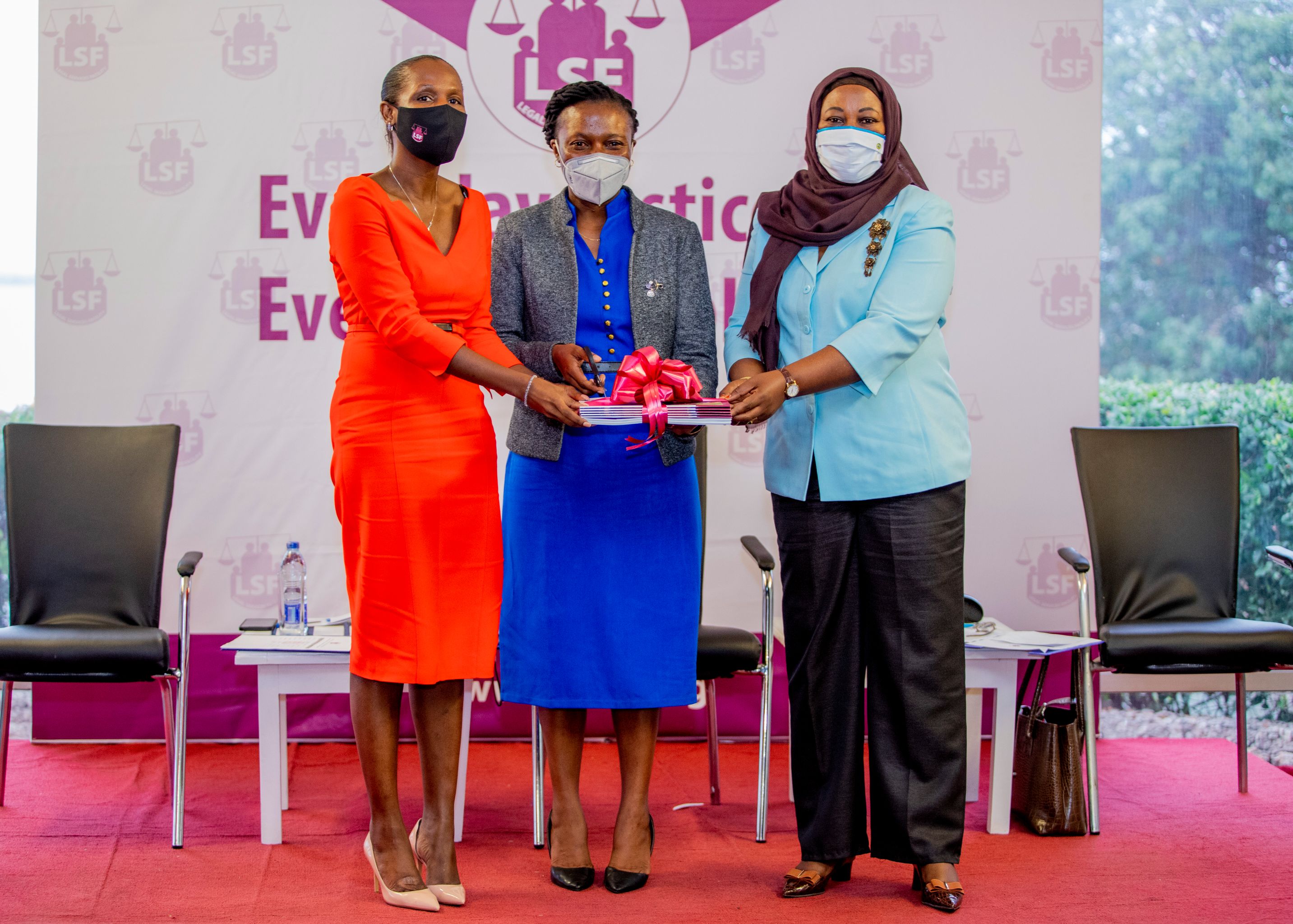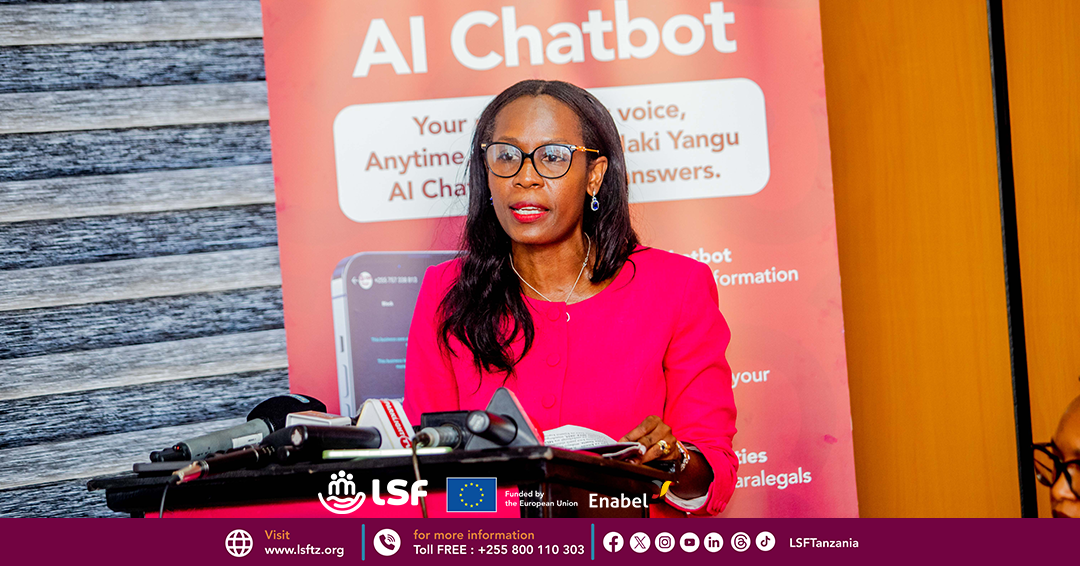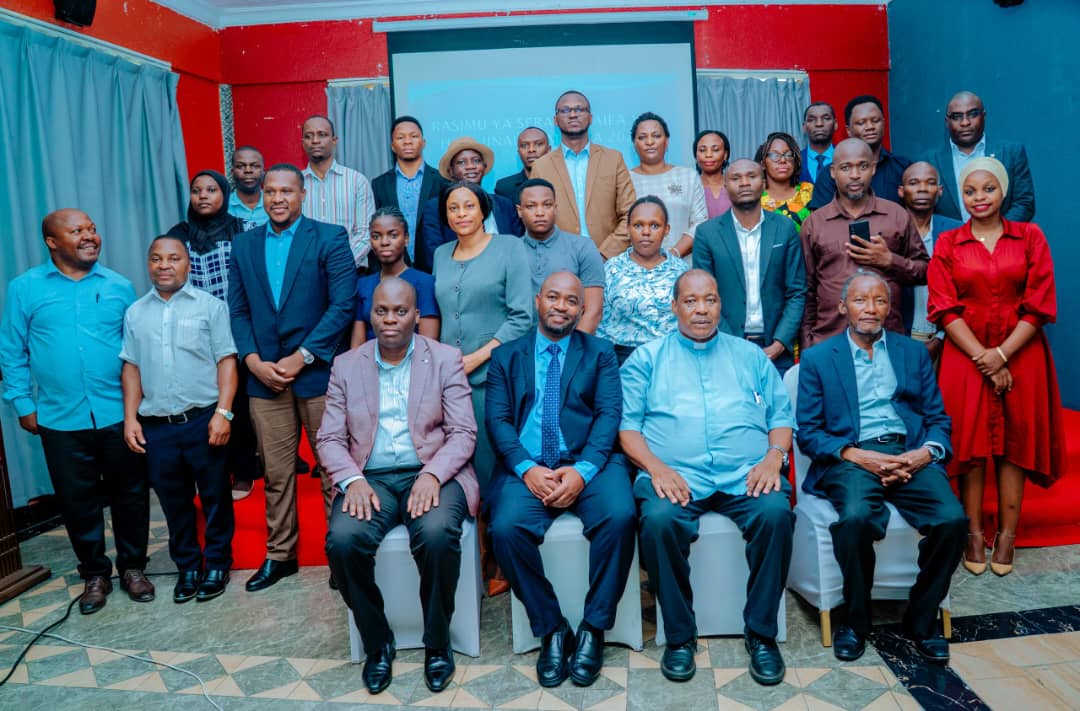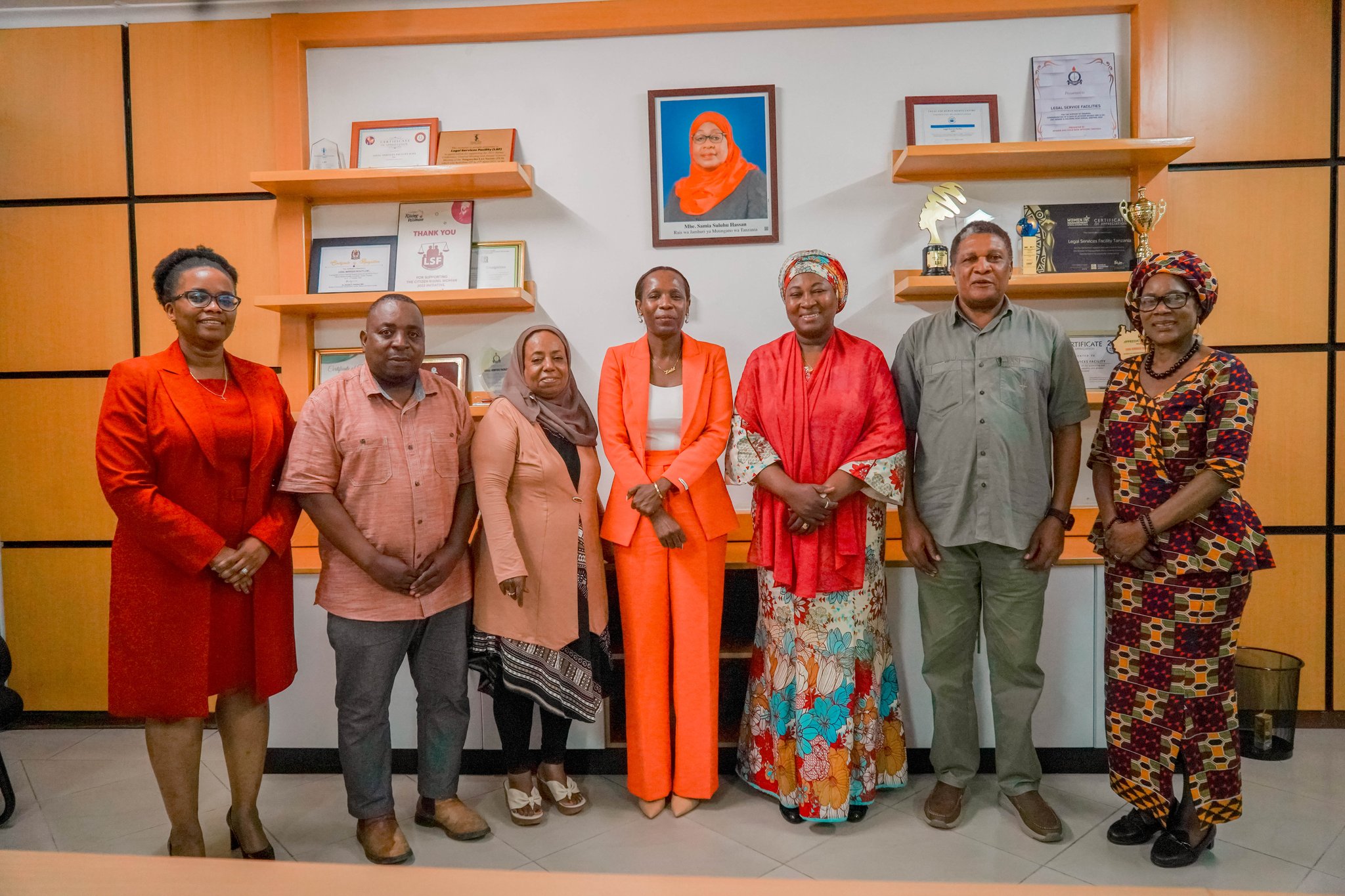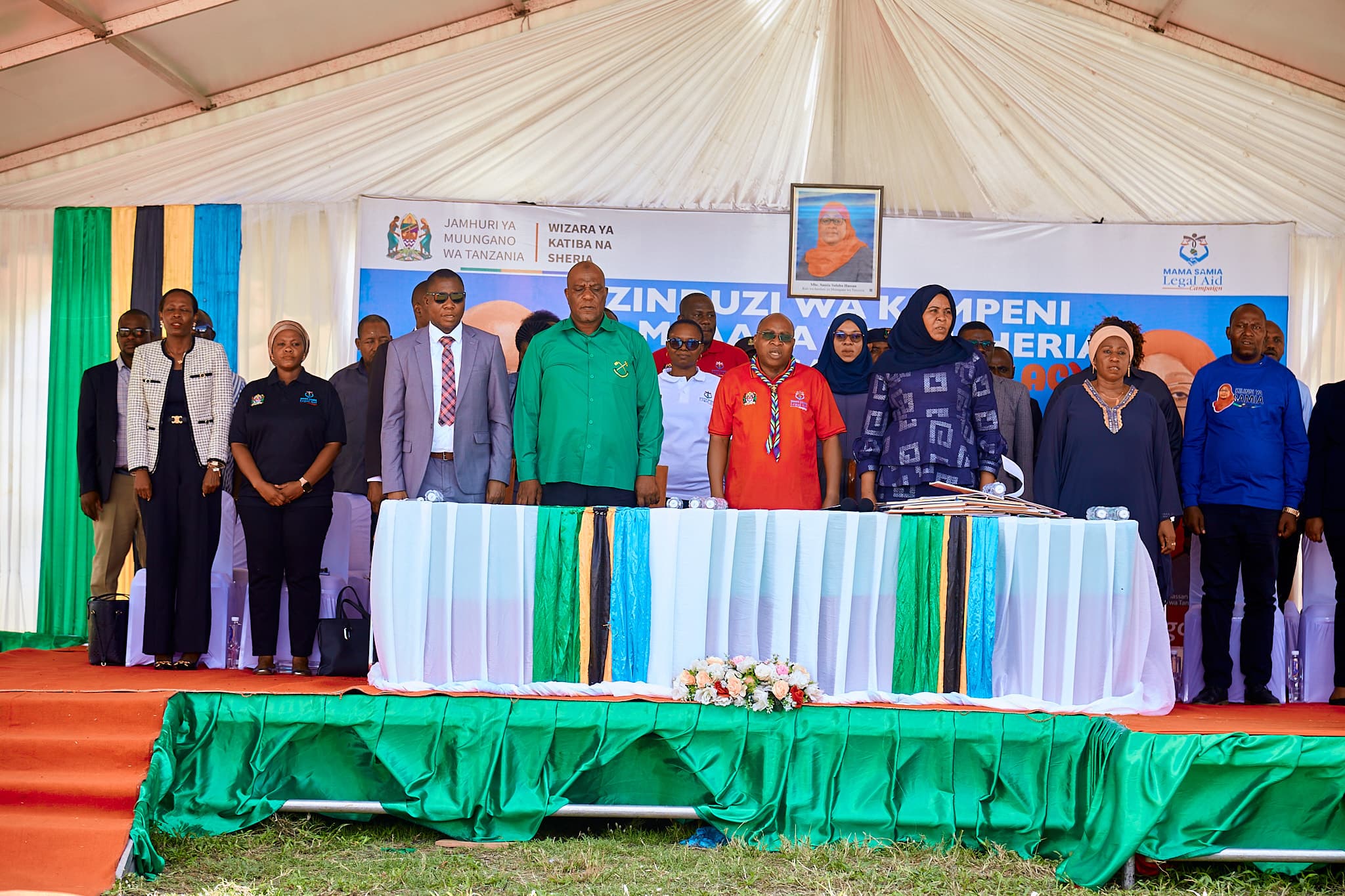LSF
LAUNCHES ITS NEW FIVE-YEAR STRATEGIC PLAN 2022/26
Friday, 20th August, 2021: Dar es Salaam
The Legal Services
Facility (LSF), a non-governmental organization that facilitates the provision
of legal aid services across the mainland and Zanzibar through paralegals and
other legal aid providers today unveiled its 5-year strategic plan. The plan
which will run from 2022-2026 comes right after the culmination of the
organization’s second phase of operations which covered the period 2016-2020
but was extended for one more year and officially ends in December this year.
This new plan will chart
the organization’s strategic direction and lay out its priorities in enabling
access to justice in the country, as well as create a more conducive
environment for women to enjoy their inherent rights and thus contribute to
their own economic activities while simultaneously improving the general
welfare of their families.
Essentially, this new
plan aims to allow LSF to work even closer to the government and other
institutions in the country in improving policies, laws and helping build a
more effective atmosphere for beneficiaries of legal aid services, particularly
women, to thrive.
In her remarks at the
launch ceremony in Dar es Salaam, LSF’s CEO Lulu Ng’wanakilala said, “We are
delighted to launch our new strategic plan for the next five years which is
geared towards guiding our organizational mandate for the next phase as we seek
to help even more ordinary Tanzanians access justice where they are;
“Our plan will
contribute to the fulfillment of SDG 16 which aims at ensuring justice for all
and SDG 5 which is intended to realize gender equality and improve the welfare
of women and girls. Along with working to meet these global goals, the plan
will also marry into our national 2020-2025 development agenda, good governance
efforts and the National Plan of Action to End Violence Against Women and
Children (NPA-VAWC), while fixating on poverty eradication and galvanizing the
nation towards middle income economy status”.
Further, Ng’wanakilala
highlighted the four primary areas of priority in the plan; “The four vital
areas that define our work within this strategic plan are clearly laid out and
they are: (i)Increase accessibility of quality legal aid services to the
marginalized communities in particular women; (ii) Promoting legally empowered
communities, in particular women.(iii) Enhancing conducive environment for
sustainable access to justice; and (iv) Improving Institutional development and
sustainability of the LSF and the legal aid sector”, she said.
Rounding off her
remarks, Ng’wanakilala added that “We will continue to implement our Access to
Justice Program across the mainland and Zanzibar while pushing ahead with our
reach to sidelined groups everywhere helping them solve their access to justice
challenges. These groups also include people living in urban areas where we
will work harder to expand influence towards justice and ultimately facilitate
the formulation of better policies and laws that will realize equality and
inclusiveness without leaving anyone behind”.
Speaking at the event,
the Registrar of Non-Governmental Organizations, Vickiness Mayao commended LSF
on the new plan saying it provides solid evidence that the organization’s
Access to Justice Program will continue, and that the Government through the
Ministry of Health, Community Development, Gender, the Elderly and Children
benefits wholesomely from its results.
“LSF is a major partner
of the Government and among NGOs that work very closely with communities in
addressing everyday challenges especially those that deprive them of their
rights, especially women, and in doing so LSF has been providing funds to other
smaller organizations that we have registered and continue to oversee. I extend
my warmest congratulations to LSF on this milestone trusting that this new
strategic plan will expand opportunities for more Tanzanians to have better
access to justice”, she said.
Mayao added that, “The
Ministry of Health implements several programs including the National Plan of
Action to End Violence Against Women and Children (NPA-VAWC) to which LSF and
paralegal organizations in all districts make significant contributions. LSF
has also designed a monitoring and reporting tool for this plan, and we will,
in addition to all that, collaborate with them to work towards amendments to
the Women and Gender Development Policy, 2000. which when complete will protect
the rights and interests of women. We see vast opportunities for working in
tandem to identify vital areas which under this strategic plan will yield
profound outcomes”.
In conclusion Mayao paid
tribute to the contribution of more than 200 partners that enabled the
implementation of the outgoing strategic plan which was funded by DANIDA, DfID
and the EU, and called on other stakeholders including government institutions,
development partners, the private sector and NGOs to coalesce around LSF’s
efforts and be prepared to extend financial or material support whenever
needed.
LSF aims to add more
funding partners to enable its Access to Justice Program to reach the grassroots
at the ward and village levels where many ordinary citizens still need to
benefit from free legal aid services.
